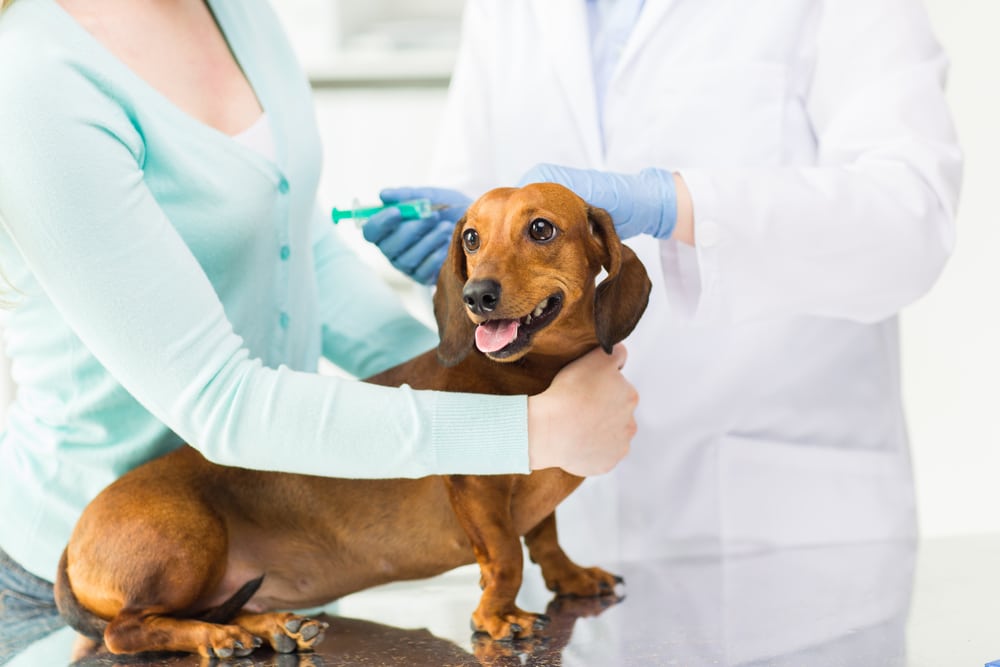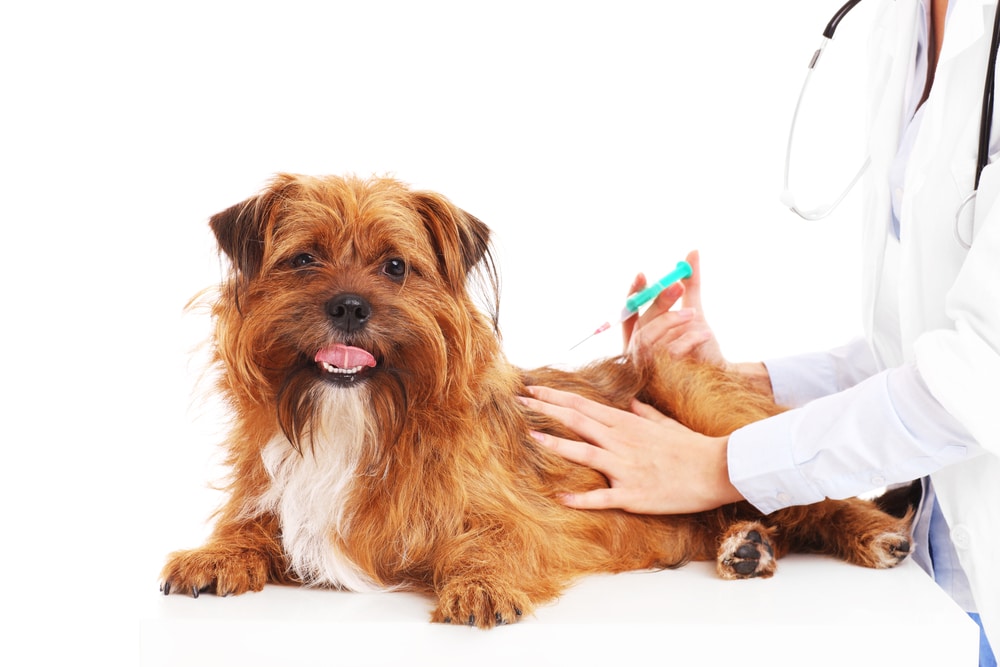Owning a pup means you need to protect it from certain illnesses and diseases if you want it to have a long and happy life. Just like when we take kids for vaccines, we need to do the same for our puppies too. And it’s not only the pups that get the needle; adult dogs need vaccines, too, just so that their immune system stays strong. But just what are the necessary vaccines for dogs?
As puppies, dogs receive several different vaccines that protect them from viruses and bacteria that are known to be deadly if they get the bug. These include parvovirus, distemper, parainfluenza, leptospirosis, and hepatitis. Rabies is another important vaccine, especially because it is 100 percent deadly and can be transmitted to humans. They may also get a vaccine against lyme and bordetella.
Table of Contents
Why Do Dogs Need Vaccines?

The easiest way to explain what the vaccine is for is this: it helps teach the dog’s immune system how to recognize and fight off certain viruses and bacteria. Have you heard why vets say it is very important that the pups get the first milk from their mum in the first 24-48 hours after they are born? Well, the answer is that this milk is special, and it is called colostrum. The difference is that colostrum has some of the protective immunoglobulins that keep puppies safe from certain diseases during their first weeks of life.
This is known as passive immunization. But that immunity doesn’t last forever, I am afraid. So, we need to teach the immune system to recognize and remember the pathogens that are harmful to young pups. This is where vaccines come in. This way of teaching immunity to work is called active immunization.
Which Vaccines Do Puppies Get?
Every vet has a different vaccination schedule, but no matter where you go, the only difference would be in the timing. The purpose of vaccines is to protect them against deadly viruses and bacteria, which is why vets strongly suggest the puppy gets at least the core vaccines against parvovirus, distemper, hepatitis, parainfluenza, and rabies. Here is a list of the vaccines that puppies get and what they protect them against.
At The Age Of 6-8 Weeks
Puppy DHPP is a vaccine that protects against distemper, hepatitis, parvovirus, and parainfluenza. Depending on where they live, they also might get a vaccine against lyme and bordetella.
At The Age Of 10-12 Weeks
After four weeks, puppies get a booster puppy DHPP, lyme, and bordetella. Leptospirosis is also a vaccine that is introduced.
At The Age Of 14-16 Weeks
They get another booster of puppy DHPP, bordetella, and lyme. In some states, they may recommend vaccinating aging leptospirosis again, and depending on law requirements, puppies also get a vaccine against rabies.
After 1 Year Of Age
Depending on the state and law requirements, puppies may get a booster vaccine each year against rabies, but vets also recommend they get a booster vaccine against everything else too. From then on, they could get the vaccine every three years.
Conclusion: What Are The Necessary Vaccines For Dogs?
We always try to urge owners to at least do the core vaccines. The reason for this is that the illnesses and diseases they protect our dogs against are easily spread and potentially deadly. It is always better to prevent rather than treat!
Keep in mind that science is always improving, so there may be new vaccines your dog needs as well!
So, what’s got you thinking about the necessary vaccines for dogs? Let us know in the comments below!
